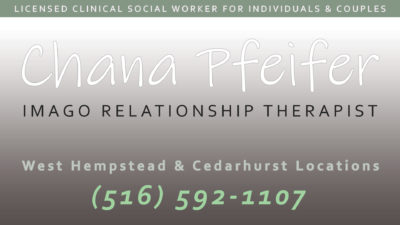All humans experience anxiety to some degree in certain situations. Feeling anxious about important upcoming events, grief, stressors, or potentially dangerous situations is considered normal and a beneficial defense mechanism.
A healthy amount of anxiety can be helpful to increase motivation and drive healthy competition and success. However, it can become problematic when it comes with unhealthy apprehension, uncontrollable worry, and intense, irrational fears that interfere with daily life, self-confidence, and relationships.
Some cases of anxiety can be due to a stressful or grief-inducing event, substance use, or a medical condition. Symptoms can also be long-term and chronic and may not improve without treatment.
If you feel that symptoms of anxiety are causing you distress, seeking therapy is recommended.
Many people associate anxiety exclusively with panic attacks, however this is not always the case. In those with generalized anxiety disorder, the pernicious symptoms are present without recurring panic attacks.
Some of the symptoms of general anxiety can be as follows:
- Mind racing with thoughts or going blank, making it hard to concentrate
- Excessive worry, apprehension, fear that seems impossible to control
- Restlessness, insomnia
- Muscle aches / tension
- Frequent fatigue
- Irritability, agitation
Panic attacks are induced quickly and can last for minutes, with recovery and post-attack fatigue possibly lingering for hours. These events can be rare and transient, or chronic and frequently recurrent.
Panic attacks generally manifest with symptoms such as:
- Increased heart rate, palpitations, chest pain
- Shaking, restless movement
- Chills or hot flashes, sweating
- Feeling short of breath, heavy respiration, tightness in the throat
- Lightheadedness, dizziness
- Nausea, abdominal discomfort
- Feelings of spiraling out of control, impending death or harm
- Disconnection from reality or time
Anxiety can also manifest itself within other conditions including depression, social anxiety, obsessive compulsive disorder, post-traumatic stress, and specific phobias.
A therapist can help you distinguish what type(s) of anxiety you are dealing with. From a cognitive perspective, the licensed provider can help you identify the thoughts that cause it while working through methods to control the anxious behaviors that come as a result.
Regardless of the intensity of your anxiety, symptoms can be managed and fears overcome through reformulating thought patterns in counseling. Being present in a neutral, non-judgmental space where you can express your fears and concerns is helpful in the journey to attain physical, psychological, and emotional relaxation. A holistic approach to counseling can teach you how to approach and handle anxiety-inducing situations without having to deal with the constant stress of fear, worry, and panic. Reaching out for help is the first important step in giving yourself the freedom of a clear, calm mind in the face of anxiety.
For more info. on counseling, call (516) 592-1107 or email Chana Pfeifer at TheHappierMe.LCSW@gmail.com.
Read more reviews on Facebook.





 Talking about your feelings, whether with a co-worker, family member, or
Talking about your feelings, whether with a co-worker, family member, or 
 The benefits of therapy can be motivating. I find people who are motivated to change CAN make improvements in their daily lives and I’m happy to help turn those wishes into actions.
The benefits of therapy can be motivating. I find people who are motivated to change CAN make improvements in their daily lives and I’m happy to help turn those wishes into actions.
 Consider infertility counseling if your sadness, depression, worrying, and/or anxiety is prolonged and affecting areas of your life. It is important to seek professional help in times of despair. A certified therapist can teach you coping skills and strategies to hopefully alleviate some of the emotional stress you are dealing with. You don’t have to do it alone. Talk to Chana today.
Consider infertility counseling if your sadness, depression, worrying, and/or anxiety is prolonged and affecting areas of your life. It is important to seek professional help in times of despair. A certified therapist can teach you coping skills and strategies to hopefully alleviate some of the emotional stress you are dealing with. You don’t have to do it alone. Talk to Chana today.
